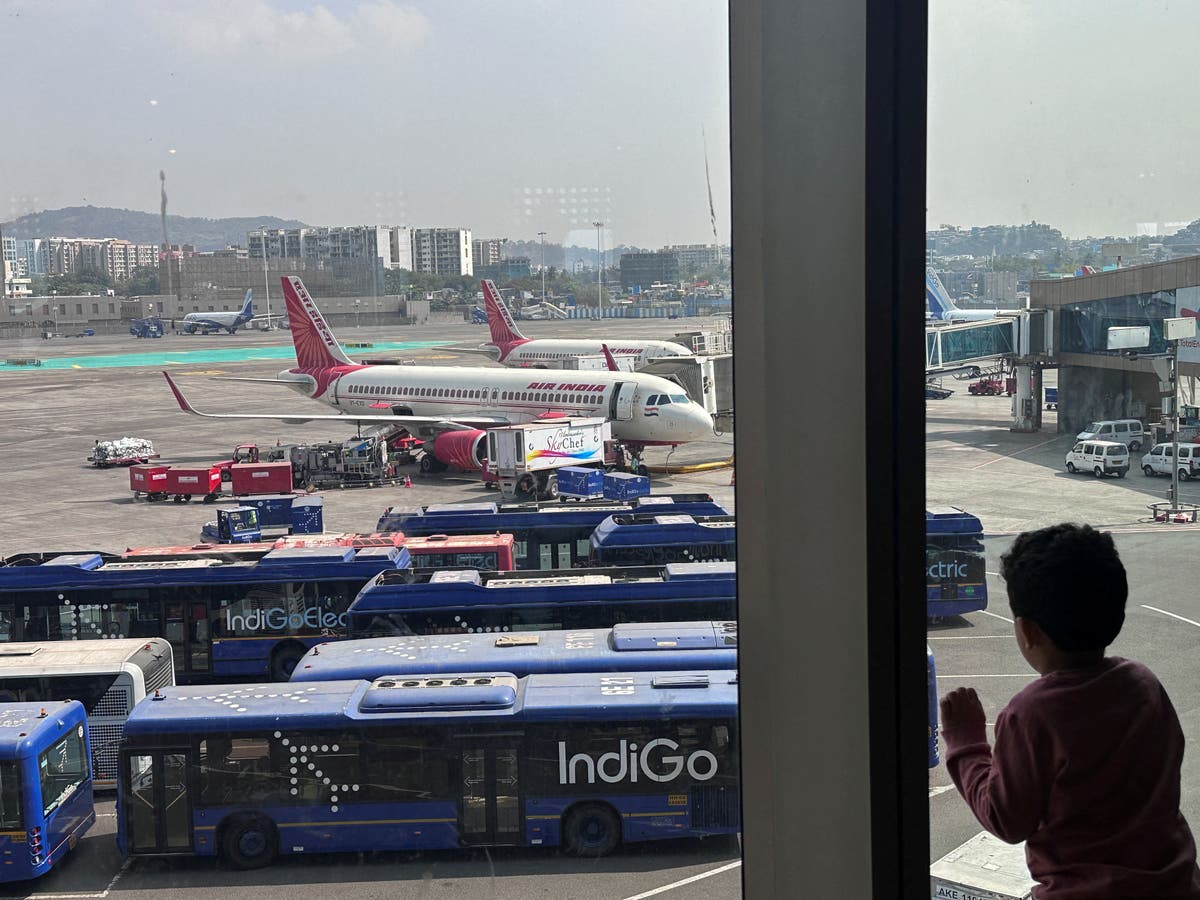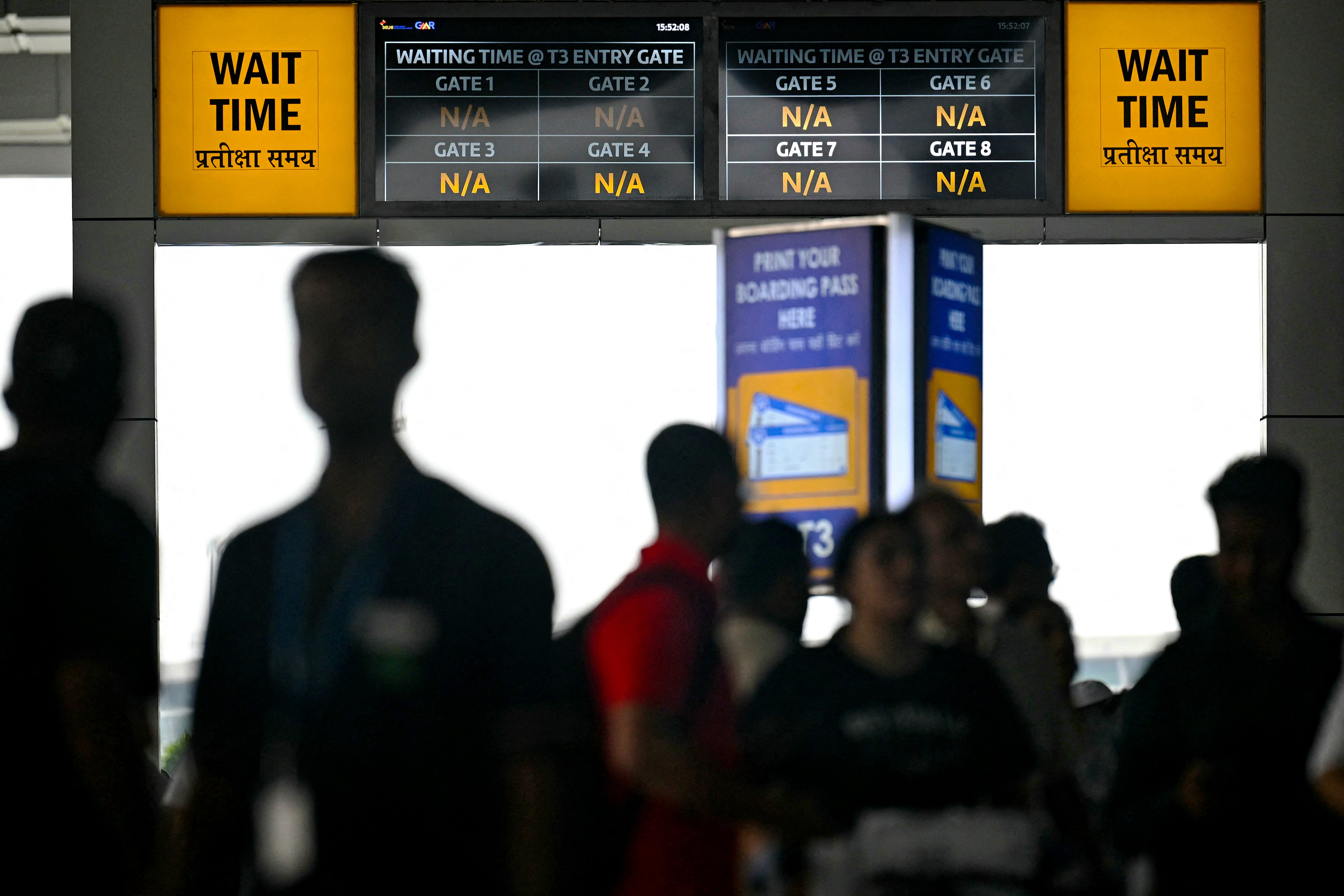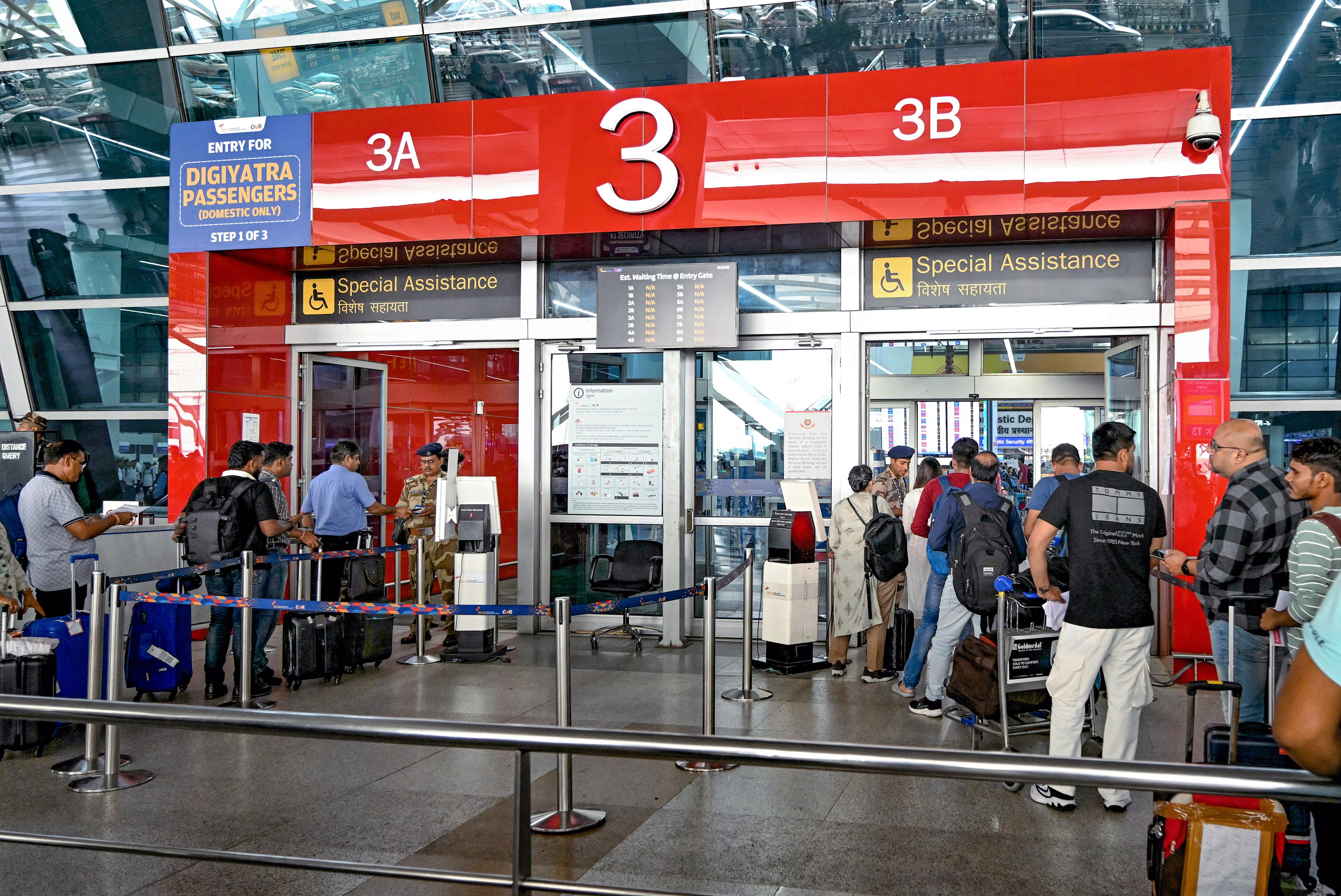What’s behind the 70 bomb threats that disrupted air travel in India?
Bomb scares have thrown Indian aviation into turmoil by forcing emergency diversions, landings, and evacuations of flights

Your support helps us to tell the story
This election is still a dead heat, according to most polls. In a fight with such wafer-thin margins, we need reporters on the ground talking to the people Trump and Harris are courting. Your support allows us to keep sending journalists to the story.
The Independent is trusted by 27 million Americans from across the entire political spectrum every month. Unlike many other quality news outlets, we choose not to lock you out of our reporting and analysis with paywalls. But quality journalism must still be paid for.
Help us keep bring these critical stories to light. Your support makes all the difference.
At least 70 flights were disrupted by hoax bomb threats in India in a disturbing trend that has rattled the country’s aviation sector.
The wave of threats, mostly issued via X, caused alarm among passengers and aviation authorities alike, and prompted urgent responses from government officials.
Over a dozen threats were made on Friday, followed by over 30 made on Saturday alone.
Three international flights of Vistara Airlines received threats early on Saturday morning, with one flight from Delhi to London diverted to Frankfurt. The other two flights were heading to Paris and Hong Kong respectively after taking off from New Delhi.
One of the threats was made to a Vistara flight arriving in Mumbai from Germany’s Frankfurt earlier in the week, carrying 147 passengers and crew. The aircraft made an emergency landing at the Mumbai airport at 7.45am local time and was taken to the isolation bay for mandatory security checks.
A similar threat forced an Air India flight to Chicago to make an emergency landing in Canada, stranding over 200 passengers for over 18 hours at a remote airport.
Another Air India flight from Mumbai to New York had to be rerouted to Delhi, evacuated, and searched for explosives.
The threats have also prompted security agencies to conduct counterterrorist drills at various airports, leading to flight delays.
Is there a ‘pattern’ behind the threats?
Indian police and security agencies have launched investigations into these incidents, but made little headway. So far they have only arrested a minor boy accused of issuing three hoax threats from a fake X handle, supposedly in a bid to implicate his friend.
Investigators have been trying to establish a “pattern” in the series of threats to various airlines, the Hindustan Times reported, citing unnamed sources.
“There is a pattern behind the messages. A threat is given using social media or through a phone call, and then suddenly similar threats start to appear within a short span of time,” an aviation security official, who was part of the discussions, told the paper.
“VPNs have been used to post the messages to avoid being traced. We’re analysing the pattern, and investigation agencies are coordinating to locate the sources of threats.”

The intention, the official claimed, was to “definitely disturb the aviation sector, create panic, and keep the agencies on their toes”.
India’s civil aviation minister assured that urgent steps were being taken to address the situation. “Such activities are a matter of grave concern,” K Ram Mohan Naidu said on Wednesday. “We will take all necessary measures to ensure the safety of passengers and the smooth functioning of the aviation sector.”
All those “responsible for the disruptions will be identified and duly prosecuted”, the minister said.
Officials found that around 70 per cent of these threats have all come from the same source – an unverified and anonymous account on X that made threats to 46 domestic and international flights of Indian carriers in two days.
The account made 12 threats on Friday night and 34 on Saturday, reported Indian news daily The Indian Express. The account has now been suspended by X.
How many flights have been targeted?
As many as 70 bomb threats have been sent since they began on Monday.
A Vistara flight and an Air India Express flight received bomb threats on Tuesday night, and four flights of IndiGo, two of SpiceJet and one of Akasa Air were targeted on Wednesday.
IndiGo flight 6E 74 from Riyadh to Mumbai was diverted to Muscat, Oman, while 6E 515 from Chennai to Lucknow needed to be isolated upon landing. Another IndiGo flight from Delhi to Mumbai was redirected to Ahmedabad on Tuesday night.
An Akasa Air flight taking 180 people to Bengaluru returned to Delhi after a similar scare on Wednesday afternoon.
An Air India flight from Delhi to Chicago was diverted to the remote Iqaluit airport in Canada after the airline received a threat on Tuesday.
The 211 passengers and crew made their way to Chicago on Wednesday after the Canadian Air Force flew them out, having spent 18 hours stranded at the airport.
Five flights from IndiGo and Akasa were sent threats, as well as three from Vistara and one from Air India Express.
On Saturday, a spokesperson from Akasa Air made a statement saying: “Some of our flights operating on 19 October 2024 have received security alerts. As per safety and security procedures, all passengers had to be deplaned as the local authorities followed necessary procedures. We request your understanding as our team on the ground did everything possible to reduce the inconvenience.”
“Airport police responded to eight incidents involving reported bomb threats this month,” Usha Rangnani, the police officer incharge of security at the Delhi airport, said. “After thorough verifications and inspection, all threats were confirmed to be hoaxes.”
She said social media accounts of people “responsible for these false threats have been suspended”.
“Legal action has been initiated against those responsible for these false alarms to ensure strict measures against misuse and to maintain the safety and security of passengers and airport operations,” she was quoted as saying by local media.

How are authorities responding?
The Parliamentary Standing Committee on Transportation summoned Vumlunmang Vualnam, India’s top civil aviation bureaucrat, who informed the lawmakers that efforts to identify suspects were underway.
The Delhi Police had registered eight complaints against unknown individuals in relation to the recent spate of hoax threats targeting multiple international and domestic flights, he said.
The Mumbai police arrested a boy, 17, for allegedly issuing three of the threats through social media accounts that he had created in the name of his friend. He was reportedly arrested from the central Indian state of Chhattisgarh.
Mr Naidu, meanwhile, met with top aviation and security officials on 14 October. “I am monitoring the situation regularly and our law enforcement agencies are pursuing all cases actively,” he said. “Such mischievous and unlawful actions are a matter of grave concern and I strongly condemn any attempt to compromise the safety, security and operational integrity of our aviation sector.”
The federal government has decided to put more air marshals on flights, the Hindustan Times reported.
“Currently, a total of 35 air marshals are deployed in flights across certain sensitive sectors. The number of such marshals will be increased to 100,” an unnamed official told the paper.
On Saturday, officials from India’s aviation safety body Bureau of Civil Aviation Security (BCAS) met the chief executive officers of the airlines in New Delhi to go over the operating procedure in case of a bomb threat. All CEOs were asked to follow the standard operating procedure when a threat comes in, as well as keep all stakeholders informed as to the actions being taken.
The BCAS, along with aviation regulator Directorate General of Civil Aviation (DGCA), are expected to issue new guidelines to tackle bomb threats.
“Indian skies are absolutely safe,” said BCAS director general Zulfiqar Hasan. “The current protocol (to deal with the situation) is robust and is being strictly followed. We reassure passengers that they should fly without any fear and in fact, fly even more.”

 UsenB
UsenB 





























